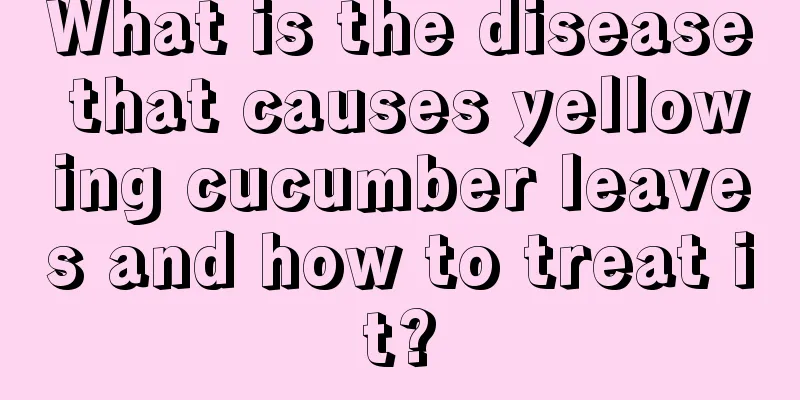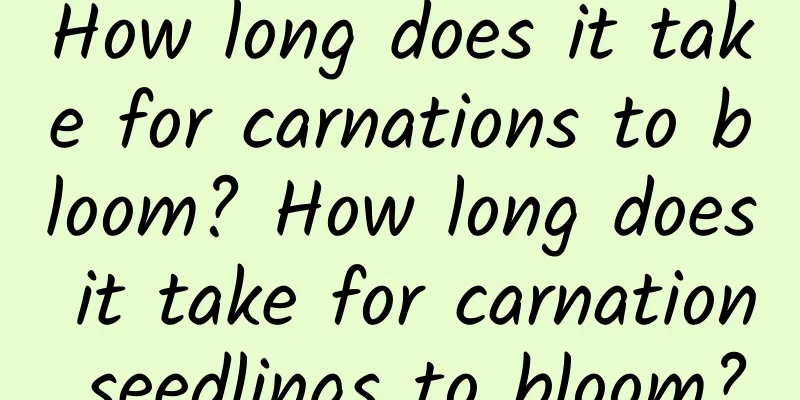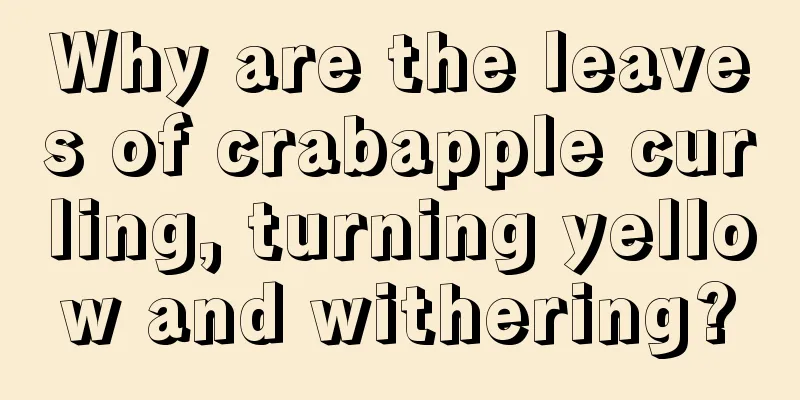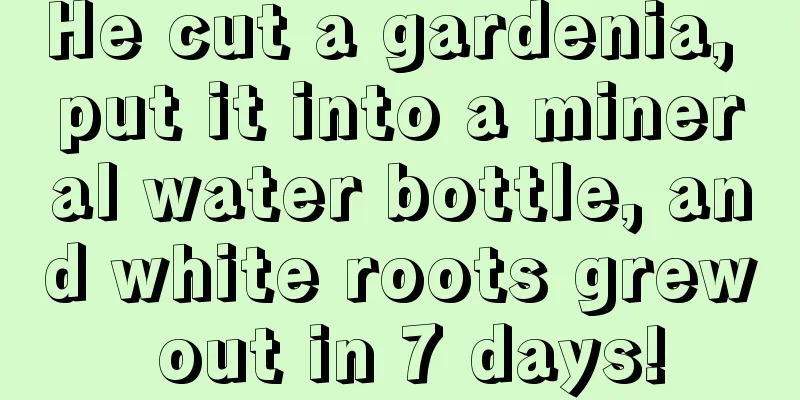What is the disease that causes yellowing cucumber leaves and how to treat it?

|
Cucumber leaves play a great role in plant growth. If the cucumber leaves turn yellow, it will have a great impact on the yield and quality of the cucumber. So what disease causes yellowing of cucumber leaves and how to treat it? Let’s learn more about it below. 1. Downy Mildew Symptoms: Initially, chlorotic yellow spots appear on the leaves. The yellow spots are generally about 1 cm in diameter and polygonal in shape. As the infection deepens, the contrast between the chlorotic yellow spots and the surrounding healthy leaves becomes increasingly clear. On rainy days or mornings with high humidity, the back of the leaves will appear waterlogged and a gray-black mold layer will appear. Treatment method: Mancozeb, Mancozeb, Cypermethrin, Mancozeb, etc. can be used. The spraying should be mainly on the back of the leaves, and the frequency should be about once a week. 2. Bacterial angular spot Symptoms: The initial symptoms are the appearance of chlorotic yellow spots on the mesophyll between the veins. When the humidity is high, the back of the leaves will also appear waterlogged. In the later stages of the disease when it is more serious, pus will flow out of the lesions, and when the air is dry, it is easy to break and cause perforation. Treatment method: You can choose Chunlei Wangtong, agricultural streptomycin, and Kesaidi, and the frequency of spraying is once every 7-10 days. 3. Fusarium wilt Symptoms: The typical symptom is that under good temperature, light and ventilation conditions, the leaves wilt and gradually turn yellow, which is sometimes mistaken for lack of water. Treatment method: You can choose quinoline copper, carbendazim, and Biotide. The main application method is root irrigation. After diluting the concentration according to the instructions, the amount of medicine for each plant should be more than 200 mg, once every 3-5 days, for 3 consecutive times. 4. Target spot disease Symptoms: In the early stage of the disease, crystal-like spots appear on the cucumber leaves. The spots are small and irregular. At the beginning, they are half the size of a sesame seed. As the disease worsens, the spots expand outward, reaching about 10 mm and are prone to perforation. Treatment method: Use 1000 times diluted benzylchlord, or 800 times diluted 70% thiophanate-methyl + 1000 times diluted pyraclostrobin + 1000 times diluted benzylchlord + brassinolide to spray the whole plant. 5. Deficiency Symptoms: The middle and upper leaves turn yellow. The elements that may be in short supply are mainly zinc, calcium, iron, etc. Treatment method: In case of zinc deficiency, spray 0.2% zinc sulfate. In case of calcium deficiency, spray 0.2-0.3% calcium chloride on the leaves. In case of iron deficiency, spray 0.5% ferrous sulfate. Symptoms: Yellowing of the middle and lower leaves may be caused by insufficient supply of elements such as potassium, nitrogen, and magnesium. Treatment method: To supplement potassium fertilizer, spray 0.4% potassium dihydrogen phosphate; to supplement nitrogen fertilizer, spray 1.5% urea on the leaves; for magnesium deficiency, spray 1-2% magnesium sulfate on the leaves. That’s it |
<<: How to take care of newly bought carnations
>>: How to take care of the newly bought lucky tree
Recommend
Fertilization method of horse hoof gold
Fertilization method of horse hoof gold Horsetail...
How to grow and water aloe vera? What kind of water should be used to make aloe vera grow faster and more vigorously?
Aloe vera is a perennial grass that is evergreen ...
How to divide Anthurium
Anthurium division time Anthurium is a plant of t...
When to water gardenia
1. Watering time The weather is hot in summer and...
What fertilizer is best for ivy?
Fertilizing Ivy Ivy likes fertilizer, and it pref...
What are the cultivation methods and precautions of peacock arrowroot
Peacock arrowroot cultivation method Peacock arro...
How to grow Clivia better
1. Maintenance methods 1. Temperature: Clivia is ...
You can only put this kind of flowers in the bedroom. Take away other flowers immediately to avoid competing with you for oxygen!
Put a pot of Christmas cactus! The leaves of Chri...
How to prune the rubber tree to make it look better
1. Topping First, you can use the pinching method...
What month is suitable for planting lotus?
When to plant lotus Lotus can generally be propag...
Chrysanthemum cutting method and precautions How to make chrysanthemum cuttings have a high survival rate
Chrysanthemums are best propagated from cuttings ...
What to do if the leaves of the money tree turn yellow
Causes and prevention of yellowing Reason 1: Over...
Can Osmanthus fragrans be propagated by cuttings?
Osmanthus fragrans is an evergreen shrub or small...
How to grow spathiphyllum at home
Growing conditions of spathiphyllum The best grow...
How to grow Jade Plant
1. Soil When planting Jade Plant, the soil must b...









